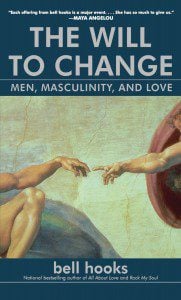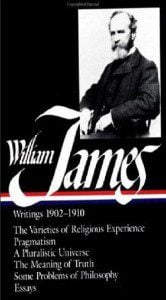During the season of Epiphany, I preached a six-part sermon series on the Didache (usually pronounced DID-ah-KAY”).
As part of my preparation, I reread Tony Jones’ book The Teaching of the Twelve: Believing & Practicing the Primitive Christianity of the Ancient Didache Community and watched the supplemental DVD from Paraclete Press. Jones has written that:
If you don’t know what the Didache is, it is an early Christian document, only rediscovered in
1873 in a dusty library in Nicomedia. At first, many considered it a forgery, but it was quickly determined to be authentic and attested in other ancient documents. Some scholars date it early 2nd century, but there’s a growing consensus that it’s earlier than that. I date it between 50 and 70 CE, contemporaneous with Paul’s letters and before the Gospels.
The Didache is not a particularly theological book. It’s actually a manual for Christian communal life, and if I had to sum up its message, I’d say it’s, Do your best. The Didache lays out a very pragmatic approach to Christian living. The line that sums that up is Didache 6:2: “For if you are able to bear the entire yoke of the Lord, you will be perfect; but if you are not able, then at least do what you can.”
The raw, simple, primitive Christianity described in the Didache is a great model for those of us attempting to free the church from its Western cultural captivity….
I additionally revisited Aaron Milavec’s groundbreaking work: both his short, accessible The Didache: Text, Translation, Analysis, and Commentary and his exceedingly longer The Didache: Faith, Hope, and Life of the Earliest Christian Communities, 50-70 C.E. I read for the first time Thomas O’Loughlin’s The Didache: A Window on the Earliest Christians. I would recommend any or all of these resources to others seeking to preach through the Didache.
The following is a brief description of each of the six sermons in this series:
Preaching the Didache: What Is Your Canon and Why? (Didache 1-2)
The Didache is addressed not to radical itinerant peasants like Jesus and his original followers, but to householders as a manual for how “to adapt the way of Jesus to the exigencies of family, of occupation, of home — the very things that Jesus and his wandering apostles had left behind.”
The Pragmatism of the Didache: At Least Do What You Can (Didache 3-6)
One Didache scholar argues that the most significant verse in the book is 6:2, ‘For if you are able to bear the entire yoke of the Lord, you will be perfect; but if you are not able, then at least do what you can.’ The pragmatism here is admirable.”
Is Baptism Overrated? (Didache 7)
Baptism is not overrated when it is viewed as a powerful sacrament and a transformative means of experiencing grace. And I recognize that many of my Baptist and Anabaptist forebears were persecuted, suffered, or died for the right to baptize adult believers as they saw fit according to their local congregation. Nevertheless, baptism is overrated anytime it is used as a barrier to Communion or even as a barrier to church membership. Open Communion to all without exception is both what Jesus did and what Jesus’ followers should be doing. I strongly support churches offering the practice of baptism as one among many spiritual practices — albeit a practice that is typically undergone only once — but I am not convinced, despite my Baptist heritage, that baptism is central to either Jesus’ public ministry or to the way of Jesus.
The Pragmatism of the Didache: Eucharist Like You’ve Never Heard It Before (Didache 9-10)
Whatever type of meal Paul was describing, either for Jesus or for the Corinthians, it was a meal in which there was enough food for someone to expect to get full (and therefore to be understandably disappointed and angry if she or he walked away still hungry) and where there was enough wine potentially to cause intoxication. In 1 Corinthians 11, “The Lord’s Supper” refers to a full meal, not a spiritualized, symbolic ritual. What is memorable and meaningful to you about Communion in any of the various ways you have practiced it? How might Communion be more or less meaningful to you if it were a full meal in which all were invited to eat and drink, or in which the presider were invited to speak new and different words of prayerful thanksgiving and gratitude?
Christ-peddlers: If God is still speaking, how do you know if someone is authentically speaking for God? (Didache 11-12)
If “God is still speaking,” then how do you know if someone is authentically speaking for God? Perhaps we need to bring the term “Christ-peddler” back into circulation for those who claim to be God’s prophets, but are truly interested only in their own profit.
“Your Daughters Shall Prophecy”: Abolishing the Laity and Ordaining Women (Didache 15:1):
Do I believe in women’s ordination? Of course I believe in it. I’ve seen it! The image of God is found in both males and females. Refusing to see God in the female body is to refuse to see at least half of what God is trying to show us through human history. Remember that we still have not reached the 100th anniversary of women’s voting rights in the U.S.
If you have suggestions or experience related to preaching through the Didache, I welcome your feedback in the comments section.
For background on our approach to worship and sermon series at Broadview Church, see “Response to Tony Jones’ Blog on ‘Picking and Choosing Your Bible Verses (or, Why To Abandon the Lectionary).’”
The Rev. Carl Gregg is a trained spiritual director, a D.Min. candidate at San Francisco Theological Seminary, and the pastor of Broadview Church in Chesapeake Beach, Maryland. Follow him on Facebook (facebook.com/carlgregg) and Twitter (@carlgregg).
















